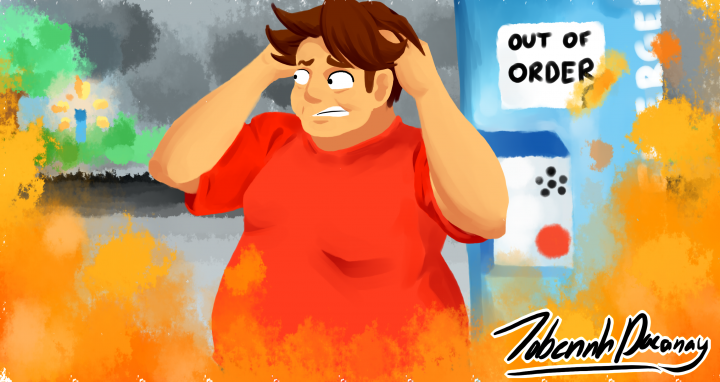
It seems like it will never happen, until it does. Last Saturday a female student was sexually assaulted Near California state university, Northridge. She was walking home from the annual concert “Big Show” and was grabbed in a dark alley.
There’s been 45 school shootings this year alone. Communities are identifying dangers early and increasing awareness. It’s bigger than “see something, say something,” it’s time to do something.
Leaving class after sundown reveals just how dark the campus can be. The Botanical Garden, Performing Arts center, and numerous parking lots have spotty lighting. Large stretches of campus are coated in ominous paths with nothing but moonlight. Night students deserve the same sense of safety the sun provides.
More than 20 years ago, CSUN implemented a volunteer program, Matador Patrol, that allows students to take proactive roles in serving the campus community. Volunteers are given training, uniforms, and tasks such as escort services, safety patrols, security watches, and assisting in event staffing.
Currently, If anyone on campus feels unsafe they have the option to call the Sheriff’s Office and request an escort. Professors need to include this information on all syllabi as well as verbal announcements at every class meeting. it may seem like a chore, but the burden of safety falls on everyone.
Pierce College should sponsor and organize a volunteer-led organization mimicking CSUN to combat the uncertainty and unease that some students suffer from. Involvement should earn students class credit, or another acceptable incentive.
Scattered across campus, there are 17 working emergency poles whose blue light acts as a beacon to those in immediate danger. Simply press the red button and it will patch through a direct call to the Sheriff’s Station while simultaneously give the operator the exact location of the signal.
According to Sheriff Deputy Al Guerrero, these poles are tested monthly by cadets and technicians. The issue isn’t that the emergency poles don’t function properly, Pierce needs more poles in more practical locations.
It’s not just night students who need support. After multiple lockdowns last year with confusing, and in some cases contradictory instruction, the protocols for a campus-wide emergency need to be common knowledge.
Communication is the key when it comes to coordinating life-saving efforts. Staff and students need to combine forces to eradicate any fear from camus, because peace of mind is irreplaceable.


